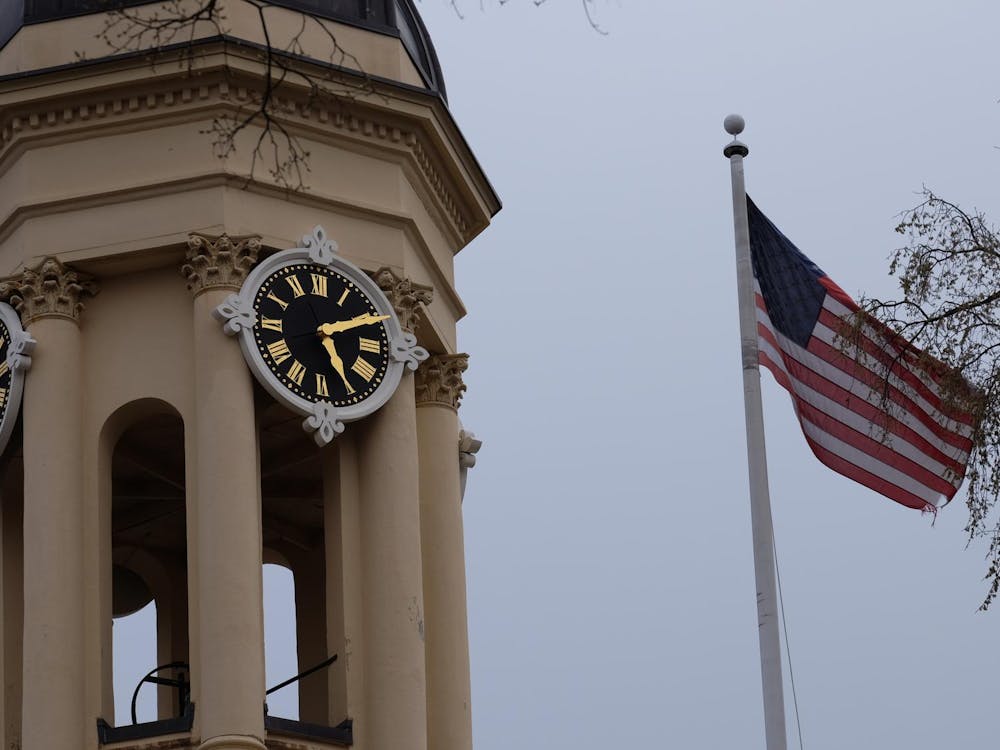In a First Things column published just days before it was announced that he would be fired from Princeton University, now-former Professor Joshua Katz dismissed Princeton as an institution which has completely surrendered its open academic discourse. Katz declared that Princeton — and all “elite schools” — have misguided and limited their students’ educational experience, blaming wokeness and excessive formality between professors and students. There are many fair critiques of Princeton; the student body bring them up frequently. But the allegation that Princeton is intellectually dead is not one of them.
It has become increasingly “cool” in “anti-woke” circles to disparage the Ivy League. In 2018, researchers found that conservatives were less likely to vote for Ivy League candidates than liberals. Former professor William Deresiewicz claims that the “progressive elite” are simply “sheep” who work within the guidelines set by the older generations, and is joined by Dara Horn, who writes that Harvard students are “unremarkable.” Bari Weiss, along with others, dislike the Ivies so much that they have founded a new university which promises to pursue truth in a way that they think elite schools have abandoned. Of course, this charge is inseparable from the critique of Ivy League free speech policies. Naysayers claim that everyone on campus is shamed into fitting into a certain mold and berated for dissenting, which causes the intellectual tradition suffer. Katz criticized Princeton on exactly these grounds in the Quillette op-ed that he claims he was sanctioned for, in which he argued that a proposal from his colleagues would harm faculty liberty and teaching excellence at Princeton, and that he thinks many signed due to “peer pressure.”
In First Things, Katz claims that the excellence he once saw at Princeton is gone. He presents the intellectual discourse at the University of Dallas’ (UD) campus as a stellar alternative. “[I]t will take a major shift in values,” he writes, until this spirit can return to Princeton. All this fits well into the tradition of Ivy-bashing. But it’s hard to believe that the school he’s describing is the one I go to.
Katz claims that conversations at Princeton would never match the level of intellectual curiosity as those at UD, where discussions on the “renderings of Psalm 90 into different languages and Lincoln’s allusion to it in the Gettysburg Address” or “the definition of virtue, the poetry of Gerard Manley Hopkins, and the meaning of Western civilization” abound. Though I have only been here for one year compared to his 25, I cannot say that I have experienced a dearth of stimulating conversation here at Princeton. I admit that not every conversation I have on campus reaches the cerebral heights that Professor Katz deems worthy. Yet, having taken Professor Allen Guelzo’s politics class on Abraham Lincoln this fall, I will submit myself as an example of a student who has, in fact, discussed the use of Psalm 90 in the Gettysburg address somewhere on campus in recent memory.
At risk of sounding pretentious, I could write more about the late nights I have spent arguing about Greek versus Christian contributions to the modern scientific tradition, Kant’s moral theory, or Jewish perspectives on sex positivity. I could write so much on the even more interesting discussions I have overheard in dining halls, on the low floors of Firestone, and in common spaces around campus.
The picture of “elite mis-education” that Katz paints is an unfair criticism of this campus. Students across the university strive to examine all sorts of fascinating subjects with exactitude and thoughtfulness, both formally and informally with the help of their many excellent professors. The intellectual tradition at the Ivy League is not dead. Far from it, in fact, as students not only try to keep up with the tradition of thought at Princeton, but also step outside it, examine it, and wonder what and whom it excludes.
However, having been a professor, Katz will certainly have a different perspective on the conversations that take place around a university. So what does a campus with unfettered intellectual discourse look like? In Katz’s article, he seems to imply that a campus benefits from the blurring of the lines between faculty and student. He even fondly remembers being present, with several other faculty, at a “raucous party in a student room on campus,” and jokes that at the UD events he attended, no one was “more than happily buzzed.” Yet opportunities to mingle freely (and presumably intellectualize between sips) are gone at Princeton, he argues, because we have fallen to “infantilization and fear.” I, for one, am extremely glad that it is no longer acceptable for faculty to attend parties in student housing, which seems to me to be an opportunity, even an invitation, to form inappropriate relationships — such as the one he has been punished for. In fact, he seems to be attempting to redefine his admitted crossing of appropriate boundaries as simply the remnants of a time with more vigorous academic debate in and out of the classroom.
Yet somehow, despite a dearth of boozy faculty-student parties, close student-faculty relationships soldier on at Princeton. Princeton offers many opportunities for students and professors to interact outside of the classroom, such as the Residential College “Take your Professor to Dinner night” twice a year, events where students are actively encouraged to engage in informal conversations with faculty, and the Princeton Home Dining Program, which will sponsor meals between faculty and students at any time of year. I have personally become well-acquainted with several professors by frequently dropping in for lengthy office hours visits and through engaging in conversation during university-sponsored outings to the MET and the Opera. Though we did not forget our respective hierarchical positions, I believe my professors and I were able to take full advantage of these opportunities to engage in discussion about a variety of topics — both personal and intellectual.

Is it possible that Ivy League universities are disparaged for rejecting free speech precisely because their intellectual discourse is so unfettered — sometimes going so far as to question the concept of free speech itself? Many students believe that University President Christopher Eisgruber ’83, who is currently being savaged as the tyrant who slew free speech, is actually too loose when it comes to questions of speech. President Eisgruber has been asked to justify the employment of professors like Robert George, who to some may push the boundaries of acceptable speech. While I disagree with the students who hold this view, the fact that they’re willing to question the very norms that undergird our society speaks to Princeton’s intellectual strengths, not its vacuousness. Some critics of Katz’s firing have also pointed to an investigative article published in the ‘Prince’ last year, which included alumni allegations of inappropriate conduct with three female students. Solveig Gold ’17, Katz’s wife, derides this publication as being “McCarthyist.” Is probing journalism — whether you agree with what it led to or not — evidence of intellectual heft or intellectual weakness? You tell me.
I write to defend the student body of Princeton and similar institutions and declare that we have not given up on the intellectual values that have existed on our campuses for hundreds of years. Katz believes that Princeton is lacking “learning and joy.” I believe that there is an overwhelming amount of both of those qualities on our campus.
Abigail Rabieh is a first-year columnist and prospective history concentrator from Cambridge, Mass. She can be reached by email at arabieh@princeton.edu, on Instagram at @a.rabs03, or on Twitter at @AbigailRabieh.









